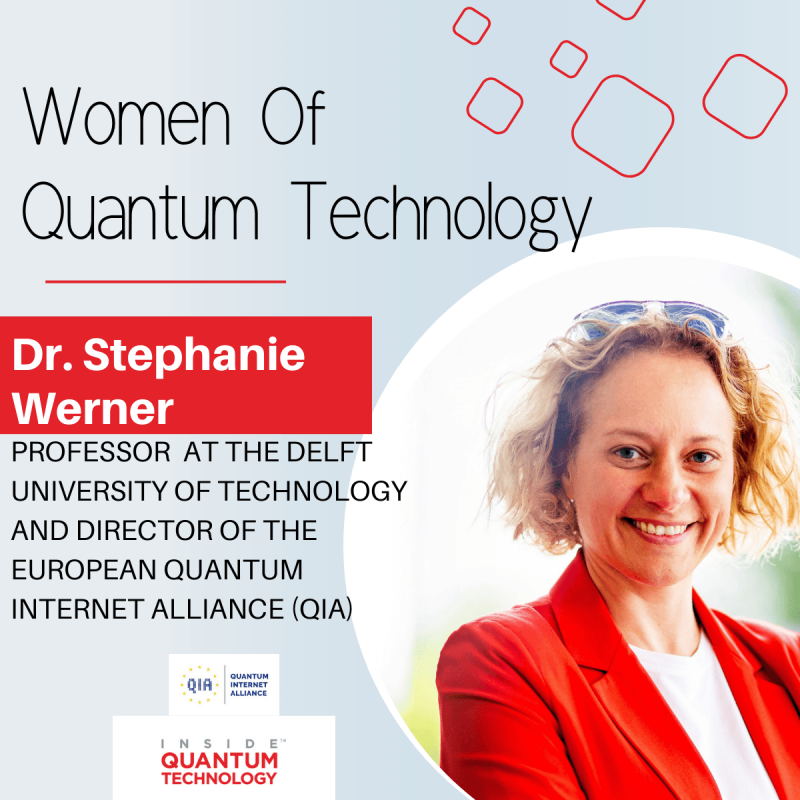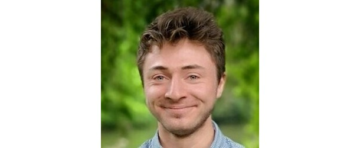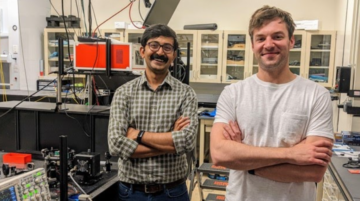
For Dr. Stephanie Wehner, the Antoni van Leeuwenhoek Professor of Quantum Information at the Delft University of Technology and the Director of the European Quantum Internet Alliance (QIA), quantum technology has always been about communication. “I was always interested in communication for fundamental and practical reasons,” Wehner explained. “From a fundamental standpoint, if you’re interested in communication, then, of course, the question is, what are the ultimate things that one can have in the domain of communication technologies? If one believes that quantum mechanics describes nature, then this naturally leads to quantum communication technologies. The second reason is a bit more practical to me. I don’t just care about fundamental or theoretical aspects of communication but also about putting it into practice. So I’m quite excited that there might be nice things to advance our communications and benefit people.”
Wehner has seen significant changes to the quantum industry in the last 20 years since she received her Ph.D. in quantum information from the University of Amsterdam. “I have a background in classical networking in the industry and computer science and some physics,” she stated. Because of her extended history with quantum information, she believes that much education is still needed for the growing industry. “I think it takes quite some time to get into quantum technologies,” Wehner elaborated. “I think that’s not something achieved overnight. Even though many people who are currently not in the field of quantum can bring a lot to the field through their respective expertise. That’s the case especially now that quantum is transitioning from something that happens in a laboratory to real-world technology.” Wehner tries to foster this inclusion of other backgrounds through her many roles within the quantum industry and in academia.
Because of her multiple positions, Wehner wears many hats. “One of them is a research hat,” Wehner explained. “So I’m a professor in quantum computer science at the Delft University of Technology. With that, I actively research quantum network technologies in various aspects. On the one hand, I work very closely with people who build quantum hardware in the lab, on the other hand, we conduct more high-level investigations that look a little further into the future.” As a researcher and professor, Wehner enjoys studying computer science and physics interactions, specifically in quantum information networks. As Wehner explained. “So, some of what I do is much more physics-oriented towards the quantum hardware. Then, some of what I do is much more computer science, which is more about questions, like how we can program such devices, control them, and build large networks?” Being a professor, Wehner as a front-row seat to educating the next generation of the quantum workforce, which she hopes will help to solve various problems in the current development of quantum systems.
When she’s not researching, Wehner is also the Director of QIA, the Quantum Internet Alliance. “The Quantum Internet Alliance is a collaboration of all 40 entities in the EU, and it’s an EU-funded initiative,” she added. “QIA pursues goals that span to the end of this decade. One of them is about the real-world realization of a prototype quantum internet. We believe this can be built and we can scale to more extensive networks and take the technology from a research product to an engineering product.” As the Director of QIA, Wehner ensures the fostering of this quantum internet community while pushing towards successful accomplishments. “On the one hand, I play many roles, one of which is a scientific role that helps everybody fit things together on a technical level,” she stated. “This is, of course, not done exclusively by myself. We have many great people in the QIA community, so I’m hopeful we will succeed.” On the other hand, Wehner also plays an administrative role in the hope that with QIA, Europe will be an established hub for quantum internet innovation. She explained: “We have the ambition to create this innovation ecosystem, not just in the member states currently part of QIA, but we would like to expand across the EU. One example of this goal is, very recently, we launched an internship program specifically for students and young professionals in member states that are not currently in QIA to come to a QIA member and do an internship.”
Wehner hopes to make the quantum internet ecosystem more inclusive to women and other underrepresented groups. For the entire quantum technology community, she offers some simple suggestions for making the culture more welcoming to others. “I think it’s essential that everybody today goes and have a coffee with one of their female colleagues to try and understand the experiences she may have as a woman in that field. This very low-key initiative can result in some valuable lessons.” Wehner also tries to use her leadership positions to help influence her own communities. “I’m a big advocate for the fact that it should be your every requirement, a hard requirement in all EU projects, to ensure that all participants take part in unconscious bias training regularly, not just once,” she added. When it comes to bias, Wehner believes that women could be positively discriminated against. “It becomes very obvious to you that men experience positive discrimination all the time,” she elaborated. “It’s a cliché but it’s a network of old boys. For example, men interact with men in a very different way, like getting hired by people they know from having a beer together. This interaction is not the same for women and can give them a disadvantage. Because of this, it is imperative, at least in the short term, in order to increase the diversity in the field to enact positive discrimination towards women and other minority groups.”
Kenna Hughes-Castleberry is a staff writer at Inside Quantum Technology and the Science Communicator at JILA (a partnership between the University of Colorado Boulder and NIST). Her writing beats include deep tech, quantum computing, and AI. Her work has been featured in Scientific American, New Scientist, Discover Magazine, Ars Technica, and more.
- SEO Powered Content & PR Distribution. Get Amplified Today.
- PlatoData.Network Vertical Generative Ai. Empower Yourself. Access Here.
- PlatoAiStream. Web3 Intelligence. Knowledge Amplified. Access Here.
- PlatoESG. Carbon, CleanTech, Energy, Environment, Solar, Waste Management. Access Here.
- PlatoHealth. Biotech and Clinical Trials Intelligence. Access Here.
- Source: https://www.insidequantumtechnology.com/news-archive/women-of-quantum-technology-stephanie-wehner-of-delft-university-of-technology-and-qia/
- :has
- :is
- :not
- 20
- 20 years
- 2023
- 27
- 40
- a
- About
- Academia
- accomplishments
- achieved
- across
- actively
- added
- administrative
- advance
- advocate
- against
- AI
- All
- Alliance
- also
- always
- ambition
- American
- an
- and
- ARE
- AS
- aspects
- At
- background
- backgrounds
- BE
- because
- becomes
- been
- beer
- being
- believe
- believes
- benefit
- between
- bias
- Big
- Bit
- bring
- build
- built
- but
- by
- CAN
- care
- case
- Changes
- closely
- Coffee
- collaboration
- colleagues
- Colorado
- come
- comes
- Communication
- Communications
- Communities
- community
- computer
- computer science
- computing
- Conduct
- control
- could
- course
- create
- Culture
- Current
- Currently
- decade
- deep
- deep tech
- Development
- Devices
- different
- Director
- Disadvantage
- discover
- discriminated
- Discrimination
- discusses
- Diversity
- do
- domain
- done
- Dont
- dr
- ecosystem
- educating
- Education
- elaborated
- end
- Engineering
- ensure
- ensures
- Entire
- entities
- especially
- essential
- established
- Ether (ETH)
- EU
- Europe
- European
- Even
- Every
- everybody
- example
- excited
- exclusively
- Expand
- experience
- Experiences
- expertise
- explained
- extensive
- fact
- featured
- female
- field
- fit
- For
- Foster
- fostering
- from
- fundamental
- further
- future
- generation
- get
- getting
- Give
- goal
- Goals
- Goes
- great
- Group’s
- Growing
- hand
- happens
- Hard
- Hardware
- hat
- Have
- having
- help
- helps
- her
- High
- high-level
- history
- hope
- hopeful
- hopes
- How
- HTTPS
- Hub
- i
- if
- image
- imperative
- in
- include
- inclusion
- Inclusive
- Increase
- industry
- influence
- information
- Initiative
- Innovation
- inside
- Inside Quantum Technology
- interact
- interaction
- interactions
- interested
- Internet
- into
- Investigations
- IT
- journey
- just
- Know
- lab
- laboratory
- large
- Last
- launched
- Leadership
- Leads
- least
- Lessons
- Level
- like
- little
- Look
- Lot
- magazine
- make
- Making
- many
- many people
- max-width
- May..
- me
- mechanics
- member
- Men
- might
- minority
- more
- much
- multiple
- myself
- naturally
- Nature
- needed
- network
- networking
- networks
- New
- next
- nice
- nist
- now
- obvious
- of
- Offers
- Old
- on
- once
- ONE
- or
- order
- Other
- Others
- our
- overnight
- own
- part
- participants
- Partnership
- People
- Physics
- plato
- Plato Data Intelligence
- PlatoData
- Play
- plays
- positions
- positive
- posted
- Practical
- practice
- problems
- Product
- professionals
- Professor
- Program
- projects
- prototype
- Pursues
- Pushing
- Putting
- Quantum
- Quantum Computer
- quantum computing
- quantum information
- Quantum Internet
- Quantum Mechanics
- quantum systems
- quantum technology
- question
- Questions
- real world
- realization
- reason
- reasons
- received
- recently
- regularly
- requirement
- research
- researcher
- respective
- result
- Role
- roles
- same
- Scale
- Science
- scientific
- Scientist
- Second
- seen
- she
- Short
- should
- significant
- Simple
- since
- So
- SOLVE
- some
- something
- span
- specifically
- Staff
- staff writer
- standpoint
- stated
- States
- Still
- Students
- Studying
- succeed
- successful
- such
- Systems
- Take
- takes
- tech
- Technical
- Technologies
- Technology
- term
- that
- The
- The Future
- their
- Them
- then
- theoretical
- There.
- they
- things
- Think
- this
- though?
- Through
- time
- to
- today
- together
- towards
- Training
- transitioning
- true
- try
- ultimate
- underrepresented
- understand
- university
- use
- Valuable
- various
- very
- was
- Way..
- we
- welcoming
- What
- when
- which
- while
- WHO
- will
- with
- within
- woman
- Women
- Work
- Workforce
- would
- writer
- writing
- years
- you
- young
- Your
- zephyrnet











